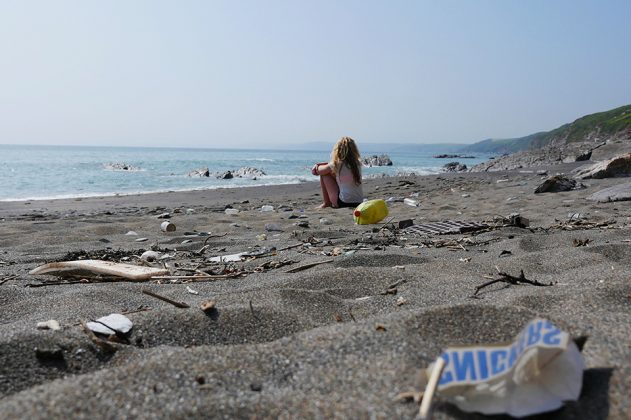It was the height of summer and during a rare sunny afternoon off, I decided to slip away from the crowds and resurrect my (rather unimpressive) freediving career at a beach off Falmouth.
With Editor Dom Moore
It had been a few years since I’d looked under water with a mask on, and just feet from the rocky shore I was amazed to find myself in the middle of a swirling shoal of beautiful silver-blue mackerel. They were in a frenzy hammering the abundant sand eels, many of which were beaching themselves to escape the onslaught. A bit further out among the string weed I could see grand old Ballan Wrasse chomping away on limpets on the reef; great shimmering green flanks on these majestic fish which would have been about twenty years old. I drifted past a gang of grey mullet that were busy nibbling at the sea floor before breaking formation and heading for cover. As well as being so relaxing this was also reassuring; the oceans are alive after all! I thought they were all dead, scraped into extinction by commercial trawlers. It did make me wonder about the real state of our oceans, both in terms of fish stocks and plastic pollution. For the latter, I sent a message to Cal Major from Paddle Against Plastic, the woman who has paddled the coastline of Cornwall and circumnavigated the Isle of Skye, coordinated countless beach cleans, and also rips on a surfboard. Cal would surely have an eyeball report of plastic on our shores, which she did, and she knew a lot more than that. Over a coffee Cal explained how incredibly vast and seemingly unsurmountable the problem of plastic in the ocean is (it’s reached the bottom of the Mariana Trench, over 10km down the deepest part of the planet) but in a nutshell, the first job is to cut plastic production off at the supply and then deal with what’s lying around. At first glance, plastic in the ocean is such an incredibly depressing subject that it’s tempting to just ignore it for a bit longer…like all problems in life (and it’s a massive problem in all of our lives) they grow bigger in the dark. It’s not until you confront it, seek out information, and start to make even the tiniest change that you will regain any sense of control, or hope.
We can look forward to insights and practical solutions from Cal in coming issues as to what each of us can do at different levels from consumer, paddler, business owner etc…to start to wind the clock back. For certain it’s going to be a campaign that spans generations, one simple thing we’ve started doing in our school is to add a bit about littering into the beach safety chats at the start of the lessons; till now these chats have just been about the threats the ocean poses to us.
As for the current fish stocks? If you haven’t heard of it, look up the Atlantic Dawn aka The Ship From Hell if you want to read an environmental and political horror story that will keep you awake at night. Depressing? Yes, but admitting there’s a problem is the first step to recovery, and changing the minds of consumers, our own minds, is the quickest way to start. SUP

